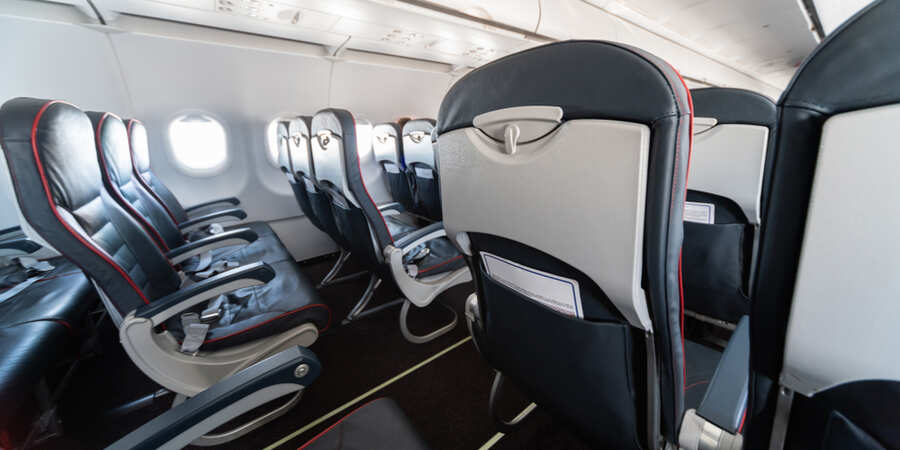Corporate travel policies focus on safety, traveling experience, and the economy of business travel. Balancing these three factors is a tough challenge for travel managers. They have to look for cheap flights offering comfort and safety to the employees.
Low Cost Carrier (LCC) or Low-Cost airlines help travel managers comply with the travel policy, as these airlines are cheaper than legacy airlines. The safety standards are equal for all airlines, whether traditional or low-cost.
What is a Low cost Carrier (LCC)?
The low-cost airlines is the perfect option for budget travelers, as these airlines ensure the economy by reducing conventional services in legacy airlines and part of the airfare. The no-frills services of low-cost carrier airlines do not provide food, drinks, or baggage as part of the airfare. They may charge an extra amount for these services. The low-cost airlines is popular among business travelers because of better travel policy compliance.
Low-cost carrier airlines ensure lower airfare at the cost of standard services usually available for air travelers of full-service airlines. Airlines use low-cost carrier services to earn profits on particular routes. These routes may help the airline bring travelers to hubs to feed more profitable flights. The option of low-cost airlines enables testing the profitability of alternative air routes.
What makes a Low Cost Carrier cheaper?
Besides adopting a no-frills policy, Low Cost Carrier airlines implement several strategies to make their products cheaper than full-service airlines. Airlines can reduce operating costs by employing a single type of aircraft, as the maintenance and training cost is less.
There is a cheaper option of Ultra Low-Cost Carrier (ULCC) to benefit from the growing demand of budget travelers. Ultra Low-Cost airlines can push airfares below LCCs by using the strategy of increasing add-on fares.
LCC can reduce costs by using secondary airports to save on ground and landing fees. Cross-subsidizing is a common approach by some leading airlines that use budget routes to support full-service routes. Another strategy to cut costs is to exclude travel agents to save on commissions. These airlines offer tickets for LCC routes on their websites to avoid third-party distribution channels.
Suggested Read: Why Should You Choose Premium Economy For Corporate Travels
Why LCC for business travel?

Most airlines introduced the Low-Cost Carrier option to focus on leisure travelers. Business travel is emerging as a lucrative segment of the airline industry. Many organizations resume business trips after the pandemic because of the easing of travel restrictions. But the business segment is quite competitive as there is a virtual price war to attract budget business travelers.
The pandemic forced organizations to cut travel budgets, creating a demand for cheaper travel options. Several companies expect employees to prefer flying, using Low-Cost Carrier airlines as part of their travel policy guidelines. Airlines can benefit from business travelers as they are frequent flyers. The segment of business travel ensures long-term clientele, unlike leisure travelers.
Difference Between Full Service & Low-Cost Carriers
Cheaper fare is the principal difference between Full Service and Low-Cost Carrier airlines. Low-cost carrier fares are cheaper besides the seats are smaller in width with lesser legroom. You will be even lucky to get a glass of water, as the LCCs operate with no frills. Full-service airlines include food, drinks, and other services in their airfare. You may have to pay extra to avail of additional services while using LCCs. The focus of full-service airlines is on the major hubs, while Low-Cost Carrier airlines operate on routes connecting smaller cities with a focus on point-to-point connectivity.
Most LCCs have a flexible policy to experiment with alternative flight routes, unlike full-service airlines that discontinue routes if the traffic is not up to the mark. They limit the aircraft types in Low-Cost Carrier airlines to ensure operational economy. Full-service airlines operate many types of aircraft to serve diverse customer segments.
Pros and cons of LCC
Budget airlines facilitate corporate travelers to benefit from cheaper fares compared with full-service airlines. The LCCs do not provide special services like in-flight entertainment, meals, and drinks. The following are a few pros and cons of the low-cost air travel option.
Pros of Low-Cost Carrier airlines
- Business travelers can ensure travel policy compliance by using the cheaper alternative of LCCs.
- Some Low-Cost Carrier airlines enable travelers to leverage promotional campaigns like lower airfares for a certain period.
- Travelers can ensure a better economy by using red-eye flights with off-peak fares of LCCs.
- Cheap airport services like parking is a unique advantage as LCCs use secondary airports to save on costs.
Cons of Low-Cost Carrier airlines
- The major disadvantage of ultra low cost airlines is subpar service that lacks luxury and seating space in full-service airlines.
- Long-distance ground transportation is a disadvantage as LCCs use smaller airports, far away from the city centers.
- Hidden costs like taxes, service charges, and modes of payment may jack up the airfare of LCCs.
Conclusion

Budget air travel is helpful to save costs if you are ready to relinquish luxury and add-on services of all-service airlines. Low Cost Carrier is a suitable choice for business travelers striving to save costs on airfare. Employees can effectively comply with travel policies by selecting Low-Cost Carrier airlines. Companies benefit from online travel management platforms like Paxes to connect with regional LCCs and GOTO airlines.
Low Cost Carrier FAQs
Do Low-Cost Carrier airlines operate long-haul flights?
Budget travelers can explore several LCC like Norwegian for long-haul flights. Many LCC are operating on Transatlantic routes.
Which airlines are cheaper than Low-Cost Carrier airlines?
Ultra low cost carriers like Spirit Airlines, Allegiant Airlines, and WOW Airlines are cheaper than LCCs.
Which are the weekdays to fly economically?
You can fly on Tuesdays and Wednesdays to benefit from lower airfares. The airfare is approximately 24 percent lower than prices on weekends.
Is it cheaper to book a flight ticket just before the departure?
You should book a flight ticket four months before the journey to benefit from the cheapest airfares. Prices are not economical for last-minute bookers.
What types of passenger complaints are common in the LCC business model?
Passengers usually complain about the long distance between smaller airports and the city center, besides extra charges for primary services.



